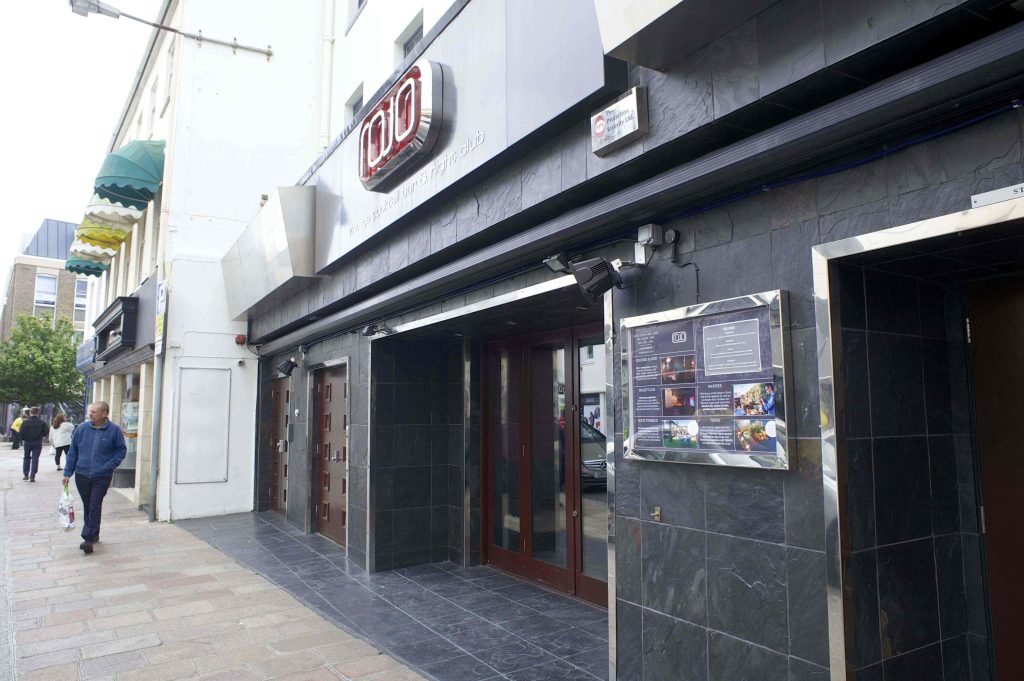


A law that bans dancing on Good Friday could be thrown out as part of a bid to revamp the island's 50-year-old alcohol legislation because “every day is a good day to celebrate with dancing", according to the Minister in charge.
Economic Development Minister Kirsten Morel confirmed that an upcoming review of Jersey’s nightlife industry is set to consider situations that “some people would view as anachronistic”.
This was revealed in the States Assembly earlier this week Deputy Morel spoke out the scope of the updates to the law.

Pictured: The 1974 Licensing Law sets out the island’s approach to alcohol and governs how licensed premises operate.
Deputy Morel said: "If people have objections to dancing on Good Friday, they should make us aware.
"But my stance would be that dancing can take place on any day.
"Every day is a good day to celebrate with dancing."
Article 72 of Jersey's 1974 Licensing Law restricts entertainment venues from providing music and dancing on Good Friday and Christmas Day.
Under the legislation, a “designated nightclub” refers to a place of entertainment used to provide music and dance for members of the public.
Jersey is the only island to follow the ‘no dancing’ tradition still. Guernsey and Alderney, along with France and the UK, have already changed their laws and have since seen bars and nightclubs open on Good Friday.
Not only does the law include the infamous 'no dancing' law on Good Friday, but it also carries numerous restrictions on operating hours and drinks offers.
For example, no 'happy hours' or 'buy-one-get-one-free' offers are allowed, while pubs must close at 23:00, and clubs must close at 02:00.
The law also governs the permits given to licensed premises. Currently, licensing decisions are taken by a panel consisting of the Bailiff and Jurats known as the Licensing Assembly.

Pictured: Replacing or updating the 1974 law with a new set of rules and regulations governing how the drinks trade is run, and policed, has been a long-running saga.
The panel is responsible for granting one of the seven rigid categories of licences to businesses that want to sell alcohol – including the taverner's license, residential, restaurant, comprehensive, club, off-license and entertainment license.
Business owners and islanders have long argued that this approach to alcohol in Jersey is outdated, saying that nightclub and bar closures as a result of the island’s Good Friday ‘no dancing’ rule had a stifling effect on business.
In 2022, music promoter Robin O’Toole of Vanguard DnB launched a petition to change the 'no dancing' rule after his event at St John’s L’Auberge du Nord pub was cancelled due to the regulations.
“The younger generation weren’t aware of [the law] and were bemused with this,” he told Express.
Others would like to see wider changes made to the law and other rules surrounding the running of late-night events, ranging from the Licensing Panel itself to special offers and event permissions.
Former JHA Association Chair and owner of JB's ping pong bar Marcus Calvani and owner of soon-to-close Rojos, JP Anquetil, is among those to have made strong calls for change, as are Sam Tumkaew and Cisco Brazao, who together are known under their DJ crew and promoter name, The Loft.
Pictured: The Loft spoke about their bid to bring the buzz back to Jersey's nightlife in the new edition of Connect - read the digital edition above or pick up a free copy around the island.
However, despite extensive consultation and repeated promises of action by successive governments, progress in modernising the 1974 law has been slow.
The Economic Development Minister has now confirmed that work is underway to make tweaks to the existing Licensing Law, rather than replacing it with a new law – as was attempted during a previous government's term in 2017 but ultimately failed.
That 2017 draft, which was eventually withdrawn, included a controversial recommendation that the Jurat-populated Licensing Bench be replaced by a 'Licensing Authority' composed of seven States Members and three lay people, similar to a Planning Committee.

Pictured: Rojo nightclub is set to close this summer, with the owner claiming that "basically everything is stacked against having a vibrant nighttime industry" in Jersey.
When asked about whether any future Licensing Assembly could be made up of States Members as was envisaged in 2017, Deputy Morel said: "It strikes fear in my heart that States Members would sit on the Licensing Panel.
"I don't think politicians should be tasked with awarding licences or not. There are so many dangers around that."
Deputy Morel confirmed that the amendments he will be putting forward are likely to include changes to the licence categories, the Licensing Assembly in the way that that operates, and the regulation of drinks promotions. These will be decided on following consultation with the industry.
He said that the licensing categories were "almost certainly not fit for purpose", adding: "They were created in 1974. And things have changed since then."
He said he is trying to fast-forward a review and to reuse previous work that has been done to amend these laws.
Deputy Morel also confirmed that he is not considering delegating licencing decisions to parishes as this would "fragment things further".
He added: "12 licensing assemblies as the ultimate authority will only create confusion for business".
FOCUS: Another round? Hopes that promises to update Jersey's alcohol law won't run dry
Gov pledges to update "anachronistic" public events law
Music promoter pushes for Good Friday 'no dancing' law change
Comments
Comments on this story express the views of the commentator only, not Bailiwick Publishing. We are unable to guarantee the accuracy of any of those comments.